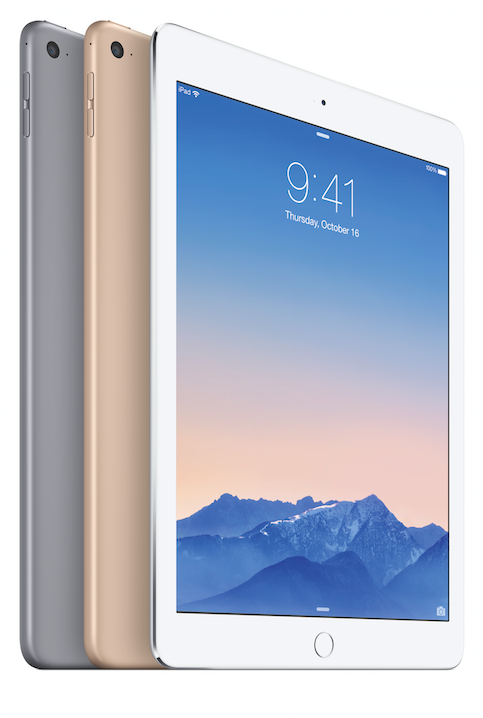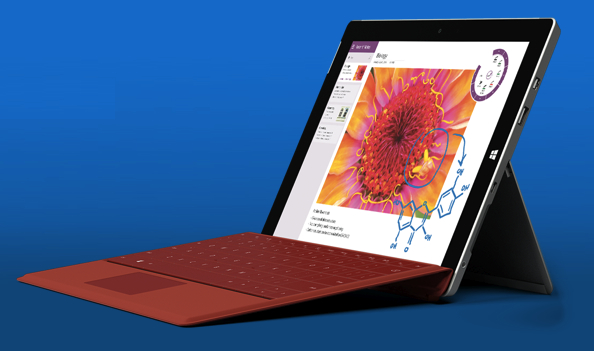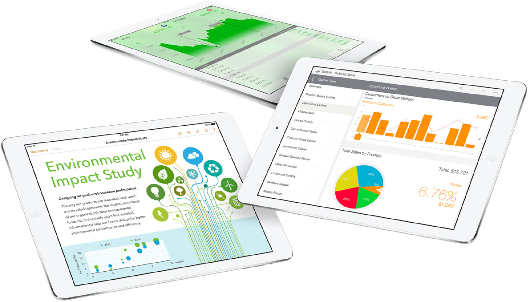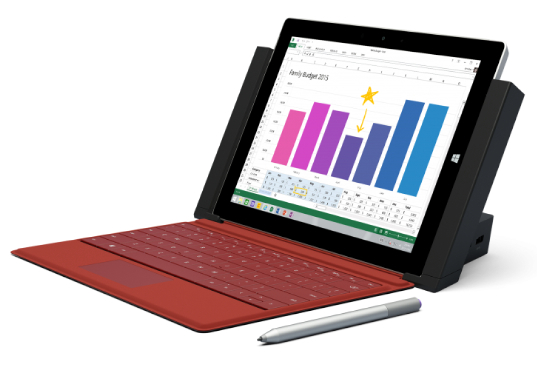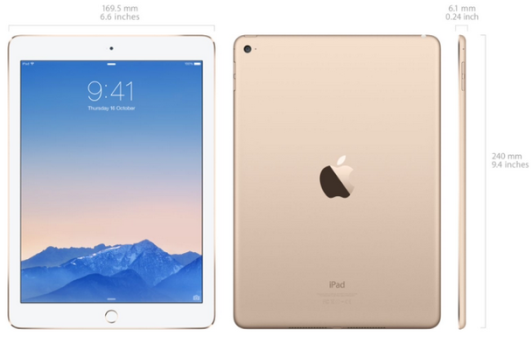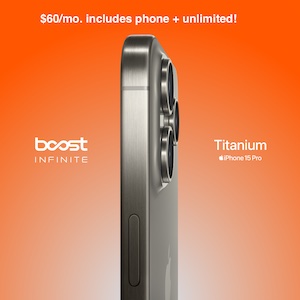Microsoft Understands “Post-PC Era” Better Than Apple – The ‘Book Mystique
This week marks the iPad’s fifth birthday, and it’s actually less ironic than it seems that more than five years after Steve Jobs declared, in his original iPad announcement keynote in 2010, that we had entered the post-PC era, Apple seems to be having more trouble than Microsoft in making post-PC a workable concept.
According to Wikipedia, the term was actually coined way back in 1999 by MIT computer scientist David Clark, and Microsoft founder Bill Gates that same year described a concept he called “PC Plus”, a computer ecoverse in which personal computers would be synchronized with mobile devices.
Mr. Jobs can be credited with bringing “post-PC” into the popular vernacular, but his prediction that tablets would make traditional desktop,and laptop PCs niche devices used mainly by a minority of people with specialized requirements hasn’t come to pass as yet.
This week, ABI Research projects that tablets are set to squeak past notebook PCs this year to become the largest mobile computing (includes tablets, MacBooks, MS Windows laptops, Chromebooks, and Ultraportable PCs)category to wind with 52 percent of the mobile computing market by year end 2015, but it’s no landslide paradigm shift. ABI Research attributes flat growth in the Notebook PC sector to longer replacement cycles and device market competition, dragging notebook devices down to 51 percent market share in 2013; to 48 percent in 2015, and a projected 47 percent by year-end 2016. However, in an Apple context, iPad sales have been stagnant or in decline for more than a year, while MacBooks have bucked the slide that’s afflicted Windows PC laptops and staged a modest sales comeback. At the otherness of the price point spectrum, Google ChromeBooks are also selling robustly and to some degree cannibalizing sales from iPad Airs and other larger tablets.
Photo Courtesy Apple
I would be interested to learn how Microsoft’s new Surface 3 tablet PC fits into this dynamic. Should it be classified as a tablet or a laptop PC? It can be used as a tablet with touchscreen input, but it runs the full desktop, and not the mobile version of Windows. Also, snap on an optional Touch Cover 2 keyboard and the Surface 3 is transformed into an ultralight laptop. So, if Surface 3 sales take off, will it be considered a tablet or a laptop since there are arguments to be made supporting its inclusion in either category? And I do expect the Surface 3 to sell well given that it’s a full Windows compatible computer with a year of MS Office subscription, 1 TB of OneDrive storage, and a free upgrade to Windows 10 thrown in — all for a base price of 500 bucks.
The Surface 3 is the most compelling exemplar yet indicating that Microsoft has a clearer vision of what it’s about in taking advantage of opportunities presented by the post-PC evolution. Recognizing that a significant percentage of tablet users are not content using their slates for just content consumption, and want the devices to be able to do real production work efficiently as well, with Surface 3 Microsoft has given us a reasonably priced machine that can do just that.
With full Windows OS support, file level document access, multitasking, side-by-side or multi open windows, mouse support — all stuff the Surface 3 can handle routinely, but no iPad will. Not to mention data storage expansion via SDCard and a standard USB port. Perhaps if a 12-inch iPad Pro materializes later this year? Maybe, but Apple has been so doggedly stubborn about providing these features, I’m not terribly optimistic.
It’s peculiar. Apple has launched a major initiative to court enterprise users to the iOS platform with the IBM business app and hardware sales deal, but has refused to provide productivity oriented users with the functionality they require to do production work efficiently on the iPad.
Photo Courtesy Apple
Apple needs to decide whether it’s really serious about promoting the iPad as an enterprise tool. A direct counterpart to the Surface 3 in the form of an iPad that would run desktop OS X would be ideal, but alas too much to hope for even in one’s most extravagant fantasies, unless someday perhaps OS X and the iOS get fully merged.
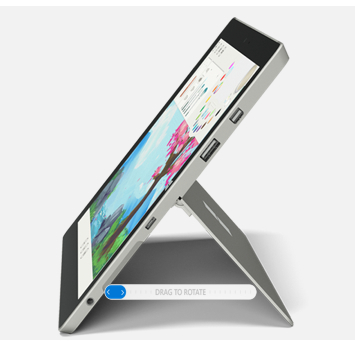 Meanwhile, Microsoft after three years of experimentation, has finally got the post-PC wind beneath its wings with the Core i powered Surface Pro 3 and now the Surface 3 tablets that can run full featured Windows and therefore actually are capable of replacing a traditional PC for many users, just as Steve Jobs envisioned, while ironically the iPad has yet to become a comprehensively capable enough machine to serve as a no or few excuses PC substitute.
Meanwhile, Microsoft after three years of experimentation, has finally got the post-PC wind beneath its wings with the Core i powered Surface Pro 3 and now the Surface 3 tablets that can run full featured Windows and therefore actually are capable of replacing a traditional PC for many users, just as Steve Jobs envisioned, while ironically the iPad has yet to become a comprehensively capable enough machine to serve as a no or few excuses PC substitute.
Photo Courtesy Microsoft
For example, I’ve been an intensive iPad user for four years, but there are still several computing tasks that are either impossible (operations requiring file level directory access), or tediously cumbersome (image editing beyond basic optimization and correction) on the iPad. As rABI Research Analyst Stephanie Van Vactor noted this week, “Notebooks offer a combination of portability and productivity that has yet to be achieved by any other portable mobile computing device.” Excerpt arguably for the Surface 3 and Pro 3 which really do make it possible to consolidate one’s computing activities on a single machine. And while iOS and Android tablets are still very popular, the adoption rate is beginning to slow and these devices do not serve the same purpose as Notebook PCs, according to ABI Research’s data.
Don’t get me wrong; I love my iPad and use it constantly for writing, research, editing, newsreading, online banking and shopping, weather monitoring, email, and more. But I am only rarely able to complete a typical writing assignment without switching back to a laptop for final proofing and posting. There’s no way I would ever want to go back to using only a laptop, but the frustration of working around the iPad’s shortcomings is a constant aggravation, especially because they are unnecessary, as Microsoft has proved with the Surface 3 products. As Ars Technica’s Technology Editor Peter Bright observes, “There’s even a miniature version of the Surface Pro 3 Docking Station built for the Surface 3 — this isn’t just a system that you can use casually on the sofa or in bed, it’s a system that can be plumbed into a nice big monitor, a proper keyboard, and serve as your main PC, too.” And starting at the same 500 bucks you pay for a (non-expandable) 16 GB iPAd Air 2.
I also see Apple’s obsession with thinner/smaller/lighter as largely counterproductive. I found my original iPad 2 perfectly satisfactory in terms old form factor, and even after four years of charge/discharge cycles every 48 hours on average it still delivers longer battery life than my new thinner, lighter iPad Air 2. The near-effortlessness of handling the Air 2 is nice, but I would gladly swap it for the ability to run a full-featured operating system along with some expandability and hardware connectivity. At the other end of the spectrum, I can’t envision ever being satisfied with the iPhone 6 Plus or other phablet-sized devices for the stuff I do with tablets.
D
Photo Courtesy Apple
Despite five consecutive quarters of negative sales growth, the iPad is no danger of fading away. Apple has sold more than 250 million of the devices in five years, making iPad the fastest-selling computer product in the company’s history. Another 21.5 million iPads shipped in the last quarter, which is a lot, even if the metric does represent an 18 percent decline year-over-year. There are a staggering more than 725,000 iPad apps available.
Even if the Surface 3 turns out to be the land-office sales success I expect it to be, It won’t put a very big dent in iPad sales. But it wil hurt some, and if Apple wants to re-boot iPad sales growth, one way would to finally be attentive to providing the functionality productivity-oriented users have been clamoring for from the start.
